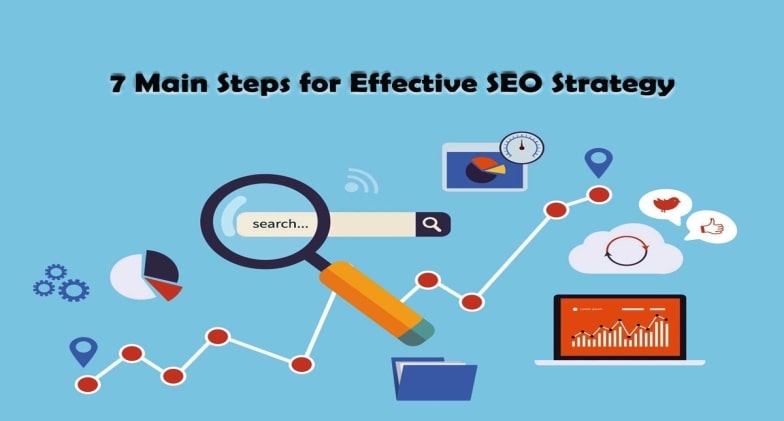SEO has become one of the most critical parts of running a website. It’s expensive to use paid traffic, so people rank on search engines to get exposure. When almost half of Google searches are now local, that’s not surprising.
The good news is that launching an SEO campaign in your local area doesn’t have to be complicated. Follow the steps below to handle local SEO for your website.
Setup Your Google Maps Listing
One critical mistake many businesses make when dealing with local SEO is skipping the Google Maps application process. Unfortunately, Google doesn’t automatically learn about your business and show you on their maps. You need to sign up for the Google My Business program and put your information into Google yourself.
You’ll need to input your company’s business information into Google and give them your address. Once you do, you’ll get a postcard with a PIN number on it. You can use this number to verify your business.
Once you verify your business with Google, you can fill out your store’s information and appear on Google Maps.
Optimize Your Website
SEO isn’t only about keywords anymore. Google now takes page experience seriously. If you have a poor user experience, it can impact your SEO rankings.
The first step is to speed up your website. Nobody wants to visit a slow website, and you’ll end up seeing a large bounce rate if you provide one. Do everything you can to cut down image sizes and decrease your page load.
The next step to website optimization is to create a responsive website. Mobile internet traffic now makes up a lot of internet traffic. If you can’t provide a great mobile experience, Google won’t display your website for those users.
These are the two most significant parts of technical SEO, but there’s much more you can do. Look for resources to learn more about handling on-site technical SEO.
Find Local Keywords
Once you optimize your website for a great user experience, you can start focusing on the keyword part of SEO. Use keyword research tools to search for topics your audience wants to reach about. You can also take your service pages and other information hubs and use those topics to find related keywords to write about.
Don’t just look for global keywords, either. The chances are good that global keyword competition is much harder than local searches.
You can append your location to your keywords to get the search volume and competition for these terms. Focus on low competition terms and write content that targets searchers. Focusing on low competition helps you create an information hub that ranks and eventually target higher-competition phrases.
Make sure you learn more info about finding good keywords to maximize your chance of ranking.
Find Citations
Citations are a form of SEO that doesn’t play as much of a role in regular SEO. You get backlinks to power up your website on the search results in normal SEO. For local companies, they can also use citations.
A citation is a listing on a business listing page. You provide your company’s information to the directory listing, and they publish that information for everyone to see.
These citations add to the credibility of your business in the eyes of Google. Just be sure to keep your information the same across all directories. You don’t want to have misinformation and hurt your rankings on search engines.
Encourage Reviews
Local searchers count on reviews now more than ever to get information about local companies. In most cases, they stick to the highly rated companies they see at the top of the map results.
This is a problem if you’re starting from zero. You may get a little traffic, but many potential customers will head to your competition that has more reviews.
You can change the game by asking your customers to leave feedback on Google Maps. The more reviews you have on Google, the more likely people are to trust your business and the higher ranking you’ll see.
Of course, it’s against the rules to incentivize reviews by offering rewards. Let people know that they should provide honest opinions. If you pay for good reviews, you risk suffering penalties.
Look for Backlinks
Citations are a great way to get authority in your area, but they won’t always be enough to boost your search engine rankings. While local search may not be as competitive as a global search term, there are still many companies to contend with.
In some cases, you’ll need to look for backlinks to help your website rank higher. You can think of a link as a vote in the eyes of Google. If you have several high-powered links pointing to your website, that’s a sign that Google can trust your website.
One common backlink method is guest posting. You reach out to sites in your industry and offer to post an article. In return, you can post your website’s link in the article.
Another option is to do something newsworthy to get coverage in newspapers. Local papers are trusted sources of information, so they carry a lot of weight on Google.
Launching an SEO Campaign Takes Time
It doesn’t matter if you’re running a local or global SEO campaign: it takes time and patience to see results from your efforts. The guide above will help you get your on-page SEO and off-page SEO working correctly. Keep up your SEO efforts over time to ensure you keep your front-page Google rankings.
Do you want to learn more online marketing tips that will help your brand stand out online? Head back to the blog to discover the latest marketing tactics.

